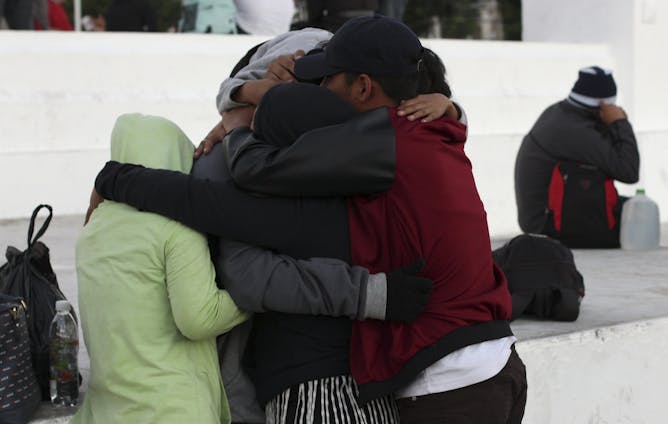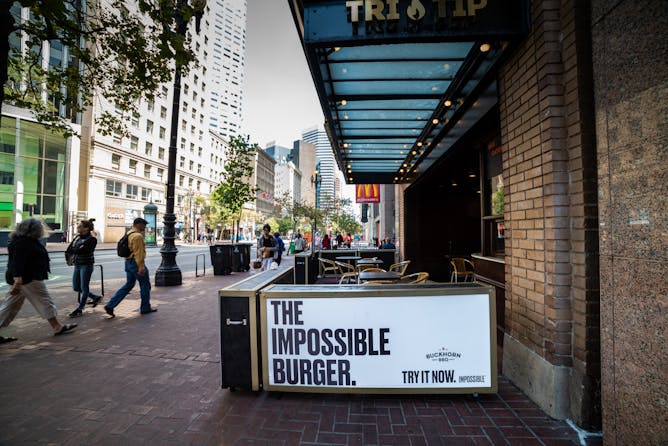Editor's note
|
|
Central Americans have arrived in the thousands at the U.S. southern border, causing what President Trump has called a crisis. Scholar Anthony W. Fontes of American University has spent much of the last decade talking to these migrants as they made their way through Mexico, seeking answers to the crucial question: Why would people give up everything, leaving their homes and history behind, to make the dangerous journey to the United States?
Around the world, most people who have been forced to leave their homes are Muslim. At the same time, anti-Muslim violence has been on the rise in the United States since 2015. Does that make it harder to fundraise for the charities that are helping refugees? Two professors conducted an experiment to find out how religious beliefs affect charitable giving.
If you live in St. Louis, you can walk into a Burger King and order a Whopper made with zero meat. Early accounts at this establishment and other restaurants show diners have trouble telling the difference between the meatless burger and a beef version. Molecular biologist and biochemist Mark O'Brian of University at Buffalo explains what ingredient makes the Impossible Whopper enticing to meat-eaters and whether it’s considered a GM
food.
|
Naomi Schalit
Senior Editor, Politics + Society
|

|
|
Top stories
|

A man hugs his family before leaving for the U.S. border with a migrant caravan from San Salvador, El Salvador, Jan. 16, 2019.
AP/Salvador Melendez
Anthony W. Fontes, American University School of International Service
Thousands of Central American migrants are trying to cross the U.S. southern border. One scholar followed their paths to find out why they make the dangerous, sometimes deadly, journey.
|

About a million Rohingya refugees are living in Bangladesh.
AP Photo/Dar Yasin
Joannie Tremblay-Boire, University of Maryland; Aseem Prakash, University of Washington
It's not necessarily because of Islamophobia.
|

An Impossible Burger sidewalk sign in San Francisco.
Chris Allan/Shutterstock.com
Mark R. O'Brian, University at Buffalo, The State University of New York
The Impossible Burger contains an ingredient made by genetically modified yeast. So is this new veggie burger organic? Vegan? A GM product?
|
|
|
Environment + Energy
|
-
Alejandro E. Camacho, University of California, Irvine; Robert Glicksman, George Washington University
Can presidents undo decisions by their predecessors to protect federal lands from development? A recent court ruling on offshore drilling says no, and could also affect contested lands in Utah.
|
|
|
|
|
|
|
|
|
|
|
|
From our international editions
|
-
Tom Solomon, University of Liverpool
Precedents exist for making people have certain vaccines. Perhaps it's time to extend this.
-
Gina Ziervogel, University of Cape Town
Cities need to pay attention to how extreme weather events effect their resources.
-
Ian Hall, Griffith University
India’s general election, held over six weeks in April and May, pits the ruling Bharatiya Janata Party’s Narendra Modi against a varied band of opponents, including Rahul Gandhi.
|
|
|
|
| |
| |
|
|